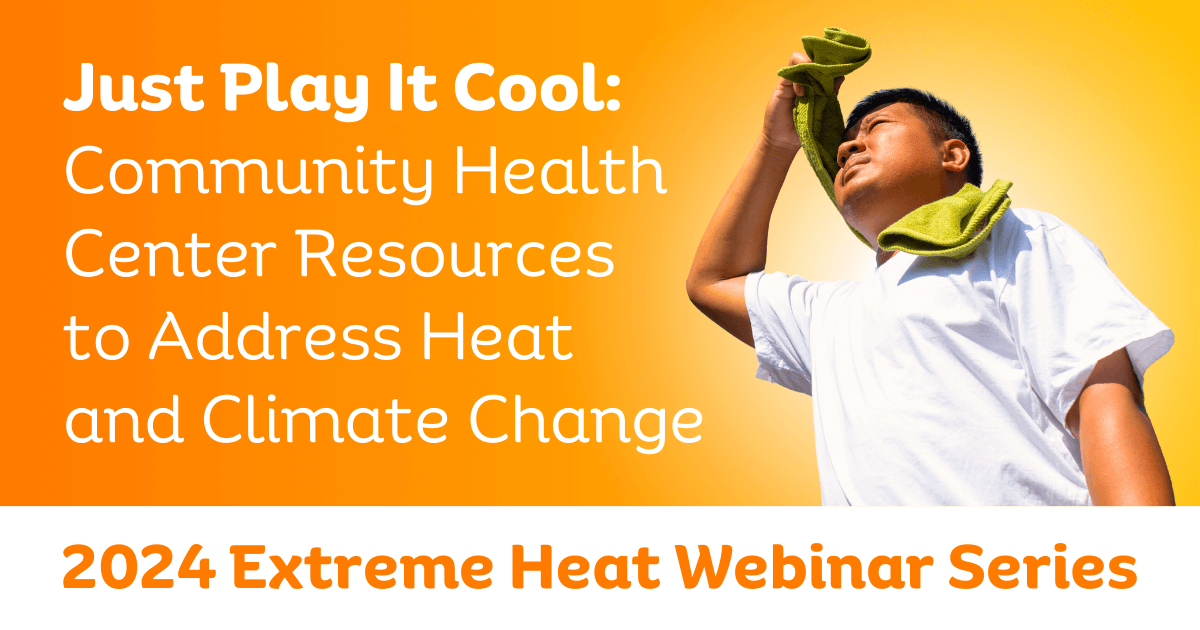MCN Applauds Maryland's Heat Illness Regulation, with an Eye on the Health of Farmworkers

[Editor’s Note: Today, Migrant Clinicians Network submitted comments on the heat stress regulation proposed by Maryland Occupational Safety and Health. In this excerpt from our comments, written by Amy K. Liebman, MPA with support from Ian Robertson, Migrant Clinicians Network celebrates the proposed rule, highlights how it will save farmworkers’ lives, and encourages further measures to protect workers from retaliation. When the rule is enacted, Maryland will join just four other states with outdoor heat rules: California, Washington, Oregon, and Colorado. A federal heat standard, recently proposed by the Biden Administration, may finally be on the horizon, although not without significant hurdles. See the end of this post to access resources on heat.]
In 2024, there was a record-breaking eight 100-degree days in Baltimore, Maryland and with the increasing global temperature, this record likely will continue to be broken yearly. Hotter weather will increasingly put workers, particularly those laboring outdoors and in unconditioned spaces, at risk of heat-related injuries and deaths. Farmworkers are among the working population most disproportionately impacted by heat. It is estimated that agricultural workers are 35 times more likely than other workers to die from heat-related illness. This population is largely immigrant and has limited formal education, lower levels of literacy, and limited English proficiency.
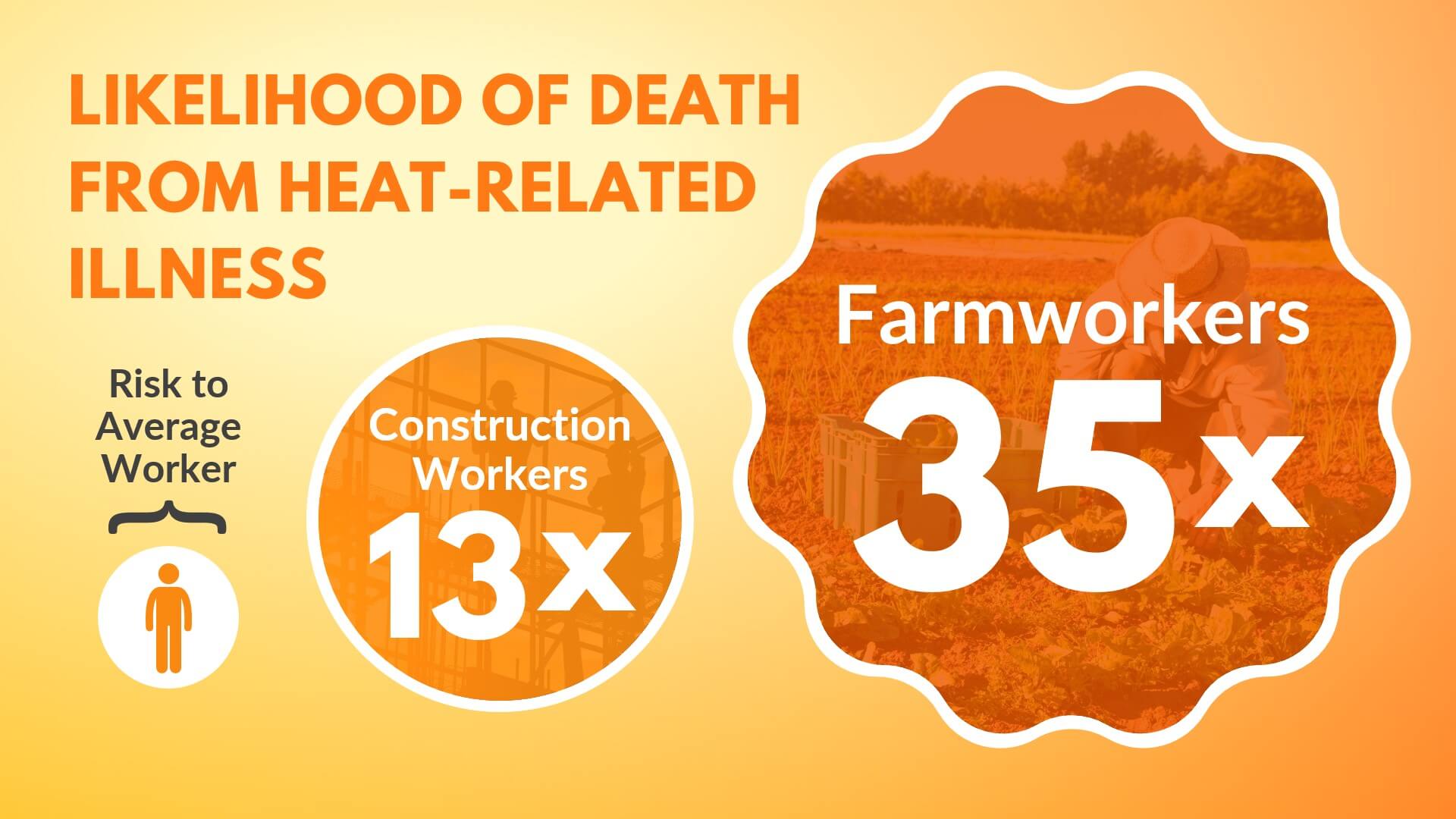
Heat-related illnesses and deaths at work are preventable. The common-sense and feasible measures included in this new proposed standard will protect Maryland workers. MCN supports every single provision of the proposed heat stress regulation including:
- A requirement for a heat illness prevention and management plan that will also be in writing and be provided and accessible to employees (and MOSH upon request);
- Employer responsibility to monitor the heat index for their employees that includes triggers for all requirements at a heat index of 80 degrees, triggers for additional requirements—including work/rest schedules (required breaks) and increased monitoring of exposed employees at a heat index of 90 degrees;
- Implementation of an emergency response plan;
- A requirement of acclimatization of exposed employees for a period of up to 14 days, and
- Worker education and training (prior to exposure, annually, and after an incident) in a language that employees and supervisors can understand, on signs and symptoms of heat illness, the importance of acclimatization, frequent consumption of water, and rest breaks to prevent heat-related illness, procedures for immediately reporting signs and symptoms of heat-related illness, and the work and environmental conditions that affect heat-related illness.

The requirements for acclimatization and worker education and training (and retraining) in a language the employees understand are particularly important for farmworkers. Many farmworkers are migrant and seasonal workers, and their employment may begin at the peak of the agricultural harvest, a time when temperatures are likely to pose a significant hazard to workers. Moreover, providing education and training in a language workers understand is critical to protecting workers. According to the National Agricultural Workers Survey (NAWS), 63% of farmworkers speak little or no English with Spanish as their primary language.
While MCN strongly supports the proposed rule, we are concerned that there are no provisions to protect workers from retaliation. To prevent heat illnesses, workers must be allowed to stop work without penalization whenever they experience symptoms related to heat illness. Workers are often afraid to assert their rights to refuse unsafe work, which is why this must be spelled out in the standard. Additionally, many farmworkers are low income and lack work authorization. The NAWS estimates 42% of farmworkers do not have authorization to legally work in the United States. Fear of job loss and deportation prevents workers from complaining or reporting poor conditions. The standard must include protection for workers from job loss or loss of pay for complying with the heat standard requirements or for reporting unsafe conditions. And this protection must be applied equally regardless of immigration status. Moreover, the standard should include financial penalties for employers who retaliate against workers.
We can do a lot to prevent heat illness! Migrant Clinicians Network has numerous resources to equip community groups, clinicians, health departments, and others with the tools they need to empower farmworkers to stay safe. Here are just a few of our recommended resources and tools on heat-related illnesses. Access all of these and much more on our Heat page.
Read:
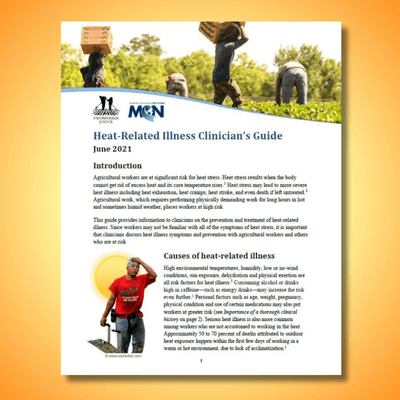 |
|
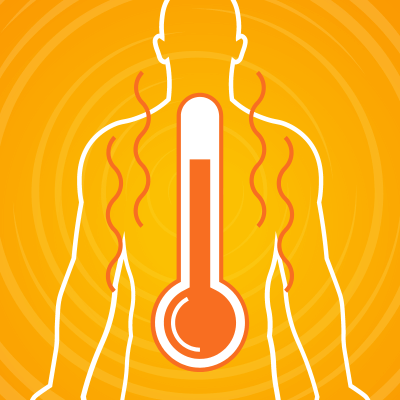 |
|
 |
|
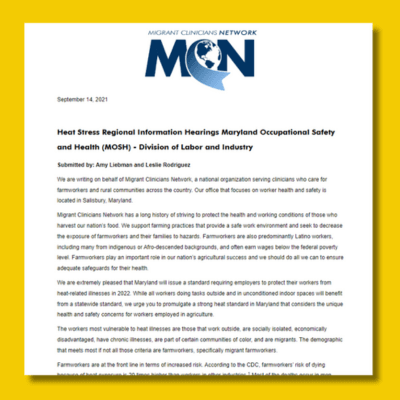 |
|
Watch:
|
Earlier this year, MCN offered a four-part webinar series on heat in English and Spanish: |
|
- Log in to post comments
